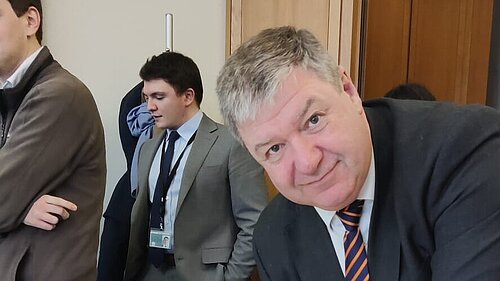Carmichael calls for greater energy decentralisation in electric vehicles debate

Orkney and Shetland MP, Alistair Carmichael, has this week called for the rollout of electric vehicles (EV) and renewables to be a spur for decentralisation of energy systems. Speaking in a parliamentary debate on EV infrastructure on Wednesday, Mr Carmichael highlighted the success of ReFLEX Orkney in boosting EV uptake, due in part to Orkney’s surplus of renewable energy. He noted that decentralisation could benefit not only individual incentives to switch to electric and save on bills, but also improve energy security and resilience around the country.
Mr Carmichael also joined the FairCharge parliamentary event on Wednesday, and signed their pledge in support of fair EV charging costs and help to make EVs more accessible for lower-income families across the country.
Speaking in Parliament Mr Carmichael said:
“From our end of the country we have an enormous surplus of renewable energy generated in Orkney, and no way to feed it into the grid because of the grid restraints. Using the availability of that energy to charge cars is a real opportunity for us, and we have the ReFLEX project that is born of that very opportunity.
“Does that not tell us though that we need to find a different way of thinking about the grid and how we use energy, and a greater degree of decentralisation [of the grid]?”
Steve Brine MP, leading the debate, replied:
“Without question and I think he makes his point well, because I think the ambition was set out and some things were done, but I’m not sure that enough thought was given to how we find the energy sources to do it. I can see why the scheme he talked about worked and I’d like to hear more about it.”
Reacting after the debate Mr Carmichael said:
“ReFLEX Orkney has been a major success in boosting electric vehicle use in the isles though there is always more to do. Greater thought is clearly needed on national infrastructure to keep up the pace on electric rollout.
“With renewables rightly becoming more and more dominant in energy generation the time is right, too, for a rethink on how we run the grid. There is an opportunity to decentralise in a way that improves our security and resilience but also incentivises greater local infrastructure for renewables and electric vehicles. If we get this right then we can encourage green generation – and bring down bills.”
